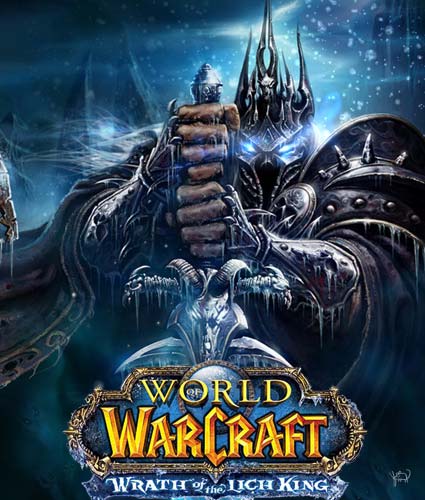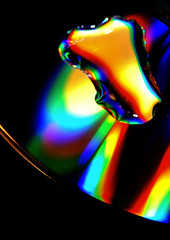Social networking is something a lot of older (35+) artists are doing poorly. Most of the mistakes are grounded in a fundamental misunderstanding(s) of the technologies at work, and how they're being used by various groups of people. I empathize, though: many people over 35 simply got left behind and are back to trying to figure it out. After a bit of thinking, I'm going to try and distill 5 major points that older artists are missing and what can be done to turn that around. Comments and feedback are greatly appreciated on this.
5. Overposting / spamming = disrespect for fans' time.Ask yourself: "Why do I log on to Facebook/Twitter?" If you answer has something to do with finding out what your friends are up to or seeking a connection, then you're on the right track. If your answer has something to do with *telling* people something, you might be coming at this from the wrong perspective.
And that's really the difference between a spammer and a sharer, isn't it? The sharer has the best interests of his/her network in mind, while the spammer is busy monitoring clickthroughs and amassing friends'n'followers. It's all about where your head is. If you already think you deserve traffic, you'll be obsessed with those stats, judging the effectiveness of your campaign instead of your art.
Related to this is the tendency to post the same message across multiple platforms (Twitter, LinkedIn, etc), an activity enabled by apps ala
Hootsuite. I understand the economics of this, but you need to be incredibly judicious. How many times do I see a Twitter crosspost on Facebook complete with useless hash-tags?
And speaking of Twitter, this is one particular service that the 35's and up simply do not understand. Part of this has to do with the cultural distribution of cellular devices - the most capable ones are in the hands of the young, while the old still struggle with the concepts of an address book and text messaging. So of course Twitter looks like just another billboard with your name on it.
This is wrong, of course. Twitter says so themselves: it's a service for communicating timely and concise information. "Timely" is another way of saying "immediately relevant," whereas most of the 35's think it means "whatever I type right now." Geographic location, new/exclusive product availability, emergency information...these are all great for Twitter. Desperate pleas for attention (i.e., "
twittername is feeling meh right now.") are the quickest way to tell your audience you've got little to say of relevance.
4. Inconsistency (voice/purpose/frequency)Basically, if you're a musician, stick with music and career related postings. There can be exceptions to this, too, but what I want to emphasize is consistency. If you're going to be a hub for all kinds of interesting arts/cultural ephemera, that's OK, too, but pay attention to being consistent about what you post.
Re: politics. I do not advocate musical artists wearing their politics on their sleeves, unless you're specifically doing politically themed work. I am not suggesting civic disengagment, but I think it's important to consider your place in the lives of your fans. This is something each artist will have to balance for themselves. All I can ask is you THINK FIRST.
3. Managing collapsing social networks & differentiating between friends & fansThis one's a real challenge for older generations who have a deep investment in firewalling their social networks. Facebook is changing that, much to our discomfort. But there's one wall that can and should be maintained - friends vs fans. A friend is someone loves you in spite of your music. A fan loves your music in spite of who you are.
In some ways, you have to treat your fans with more respect and delicacy than friends. Fans can be more fickle, and ultimately, they're the ones paying your way. These lessons are tough to learn, and difficult to adapt to. My heart goes out to you, fellow artists.
2. Resistance to new technology / adoption barriers#3 is excacerbated by #2. I know that iPhones are expensive, and beyond the reach of many musicians, but used models are avail on eBay for a much lower cost. It gets you in the basic game, though. Older people have a mechanistic view of the world, so dealing with complex abstractions like cell networks, etc, is difficult. Most of the things the modern world lives on seem akin to magic to most people (just ask them to describe how a credit card works...).
But I'm not talking about just iPhones, but just about every tech that's coming down the stream, from web browser addons to cloud music services, etc. 35+'s barely have an appropriate conceptual framework for these things much less the understanding on how to leverage them to any advantage.
1. Passive-Aggressive PanhandlingThe worst offense.
I get it: we're out here, shouting into the darkness, watching young kids who've paid absolutely no dues being crowned "Idols" and handed nationwide tours. We feel underpaid and overlooked. We don't understand why nobody is listening to us when we feel we've got so much to say (finally). We feel alienated.
So we lash out. We start spamming our Twitter feeds with incessant pleas to retweet our music. We waste so much time trying to craft a clever pickup line or gimmick ("retweet this and get a free thingyblah!") This is the internet equivalent of begging for spare change. Nobody wants to get behind that person. Sure, beggars get pity money, but nobody gives them any real investment.
Our job as artists is to
astonish. To create a gravity so undeniable it attracts everything around it. THIS IS NOT EASY, and the pressure and circumstances sometimes involved have destroyed otherwise wholesome people.
Unhappiness is often rooted in a perceived disparity between where one is and where one wishes to be. Recalibrating your wishes and expectations is the easiest way to be happy, and ultimately, that's what attracts people to you.
The alternative is not the easiest way.








